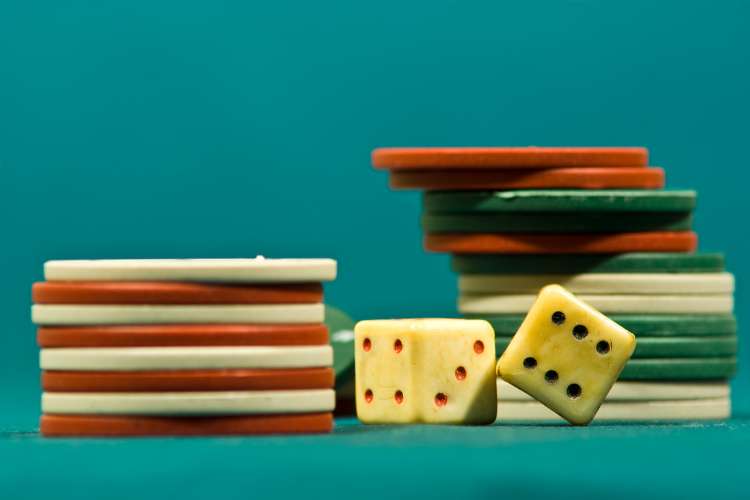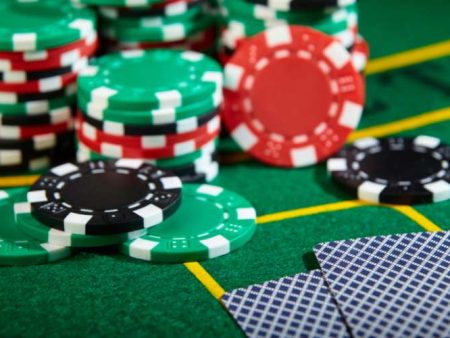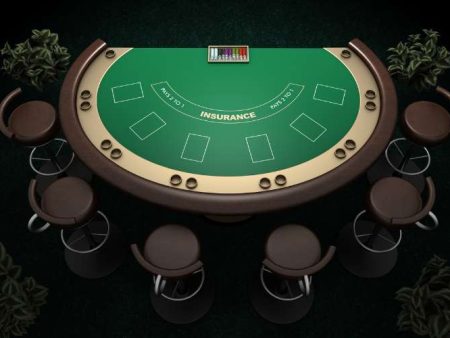
What's on this page
When you sit down at a blackjack table, whether in a bustling casino or from the comfort of your own home, you’re faced with an intriguing question: Is blackjack a game of luck, or is it all about skill? It’s a question that has sparked debates among casual players and seasoned pros alike. For me, it’s been an exciting journey exploring both sides of this coin. Today, I’ll break down how luck vs. skill in blackjack plays out and why understanding this balance is crucial for anyone looking to improve their game, whether you’re playing legally at a casino or choosing to play blackjack at home with friends.
Understanding Blackjack: The Basics
Blackjack, one of the most popular casino games worldwide, is often seen as a blend of both chance and strategy. The objective is simple: get a hand total as close to 21 as possible, without going over. Face cards (Jack, Queen, King) are worth 10 points, Aces are worth either 1 or 11 points, and numbered cards hold their face value.
The dealer and the player each receive two cards, with one card face-up. The player then decides whether to hit (take another card), stand (keep their current hand), or use other options like double down or split. It’s the decisions you make here that separate the casual players from the experts, as this is where the role of skill begins to shine.
The Role of Luck in Blackjack
It’s undeniable: luck plays a role in blackjack. Every hand is determined by the cards you’re dealt, and no matter how skilled you are, you can’t predict what cards will show up next. A good shuffle ensures that each game starts fresh, and while you can strategize, the randomness of the deck still impacts the outcome.
For example, you may have the perfect hand in terms of strategy, but luck can work against you when the dealer gets a better hand or when you’re stuck with a 12 and draw a 10. Luck is particularly noticeable in short-term results, where one session may see you winning big, and the next, despite following all the right strategies, leads to a loss.
Let’s face it: no matter how well you understand the rules or strategy, luck is the element that keeps the game thrilling and unpredictable.
The Importance of Skill in Blackjack
While luck is undeniably present, skill is the factor that can help tilt the odds in your favor over time. Unlike many other casino games, blackjack offers opportunities for players to influence the outcome. There are several key strategies that can turn a seemingly average player into a formidable opponent at the table.
Basic Strategy: This is the most fundamental skill every blackjack player should master. By following a basic strategy chart, you can minimize the house edge and make decisions based on mathematical probabilities. For example, you should always stand on a 17 or higher, hit on 11 or lower, and double down on 10 or 11 if the dealer’s card is weaker. Following these rules consistently can improve your chances of winning.
Card Counting: This technique takes skill to the next level. While many consider it a controversial tactic, card counting is a strategy that famous blackjack players like Edward O. Thorp made famous. It involves keeping track of the high and low cards dealt to get a sense of which cards remain in the deck. With the right counting system, players can raise their bets when the deck is favorable. It’s not illegal, but casinos don’t take kindly to it, and they may ask you to leave if they suspect you’re counting cards.
Betting Strategies: A good betting strategy can also enhance your chances of winning over time. Systems like the Martingale strategy (doubling your bet after each loss) or the Paroli system (increasing your bet after a win) are designed to help manage your bankroll and give you a chance to recover losses.
How Luck and Skill Interact in Blackjack
Here’s where things get interesting: while luck and skill are separate components, they interact in ways that make blackjack unique. The reality is, even the most skilled players can face a run of bad luck. Likewise, an unskilled player might get a hot streak simply by chance.
This interplay can be summed up by a simple concept: the role of luck is immediate, but skill will influence the long-term outcome. If you’re consistently applying sound strategies, you’ll see positive results over a long period, but you’ll still experience those moments of bad luck, like drawing a 5 when you need a 10. However, those bad runs won’t determine your overall success.
Ultimately, while you can’t eliminate luck from the equation, skilled play helps you navigate through the highs and lows.
Card Counting: A Skilled Approach to Beating the House Edge
When you think of famous blackjack players, one name that comes to mind is Card Counting expert and author, Edward Thorp. Card counting isn’t magic, but it’s a skill that can, in the right circumstances, shift the odds slightly in your favor. It’s about keeping track of the ratio of high to low cards left in the deck.
How It Works: The concept behind card counting is that when the deck is rich in high cards (10s, Jacks, Queens, Kings, and Aces), it’s more likely you’ll draw a favorable hand, such as a blackjack (an Ace and a 10-point card). By keeping track of these cards, you can adjust your bet size accordingly, increasing your bets when the deck is hot and lowering them when it’s not.
However, it’s worth mentioning that casinos are aware of this tactic and have countermeasures in place. Many casinos shuffle the deck more often or use multiple decks, making it harder to count cards effectively. Still, for those willing to put in the effort, card counting is an effective way to minimize the house edge.
The Impact of Blackjack Variants on Luck and Skill
When it comes to blackjack, different variants can influence the balance between luck and skill. Whether you’re playing European Blackjack, Vegas Strip Blackjack, or even Spanish 21, each game comes with its own rules and house edge. Some variants, like Spanish 21, offer additional rules that allow for more player-friendly strategies, while others may increase the house edge.
For example, in European Blackjack, the dealer only receives their second card after players have completed their hands. This gives players a slight advantage because they know whether they’re playing against a dealer with a strong or weak hand before making their decisions. On the other hand, games with multiple decks, like Vegas Strip Blackjack, reduce the effectiveness of card counting.
Understanding the nuances of different variants will allow you to adjust your strategies based on the game you’re playing, improving the role of skill in your blackjack experience.
Psychological Factors and Emotional Control
It’s not just about the cards you’re dealt or the strategies you use; psychological factors play a big role in your success. Good players must manage their emotions and stay focused, even during losing streaks. It’s easy to get carried away after a string of wins, but the key to success is maintaining discipline.
When you let emotions take over—whether it’s the excitement of a win or frustration after a loss—it’s easy to make poor decisions. This is why one of the best skill tips I can offer is emotional control. Even if luck isn’t on your side, staying calm and sticking to your strategy will always be a better approach than chasing losses or betting impulsively.
Why Luck Can’t Be Completely Avoided
Despite all the strategies and skills you may have mastered, luck still plays a role. The best players know that, but they also understand that luck is a short-term factor. Over time, skill will help you weather the storms of bad luck, but you’ll never be able to completely control it. Recognizing and accepting this is vital for keeping expectations realistic and enjoying the game for what it is: a mix of fun, chance, and strategy.
Tips for UK Players: How to Improve Your Blackjack Game
- Master Basic Strategy: Use a basic strategy chart to reduce the house edge and improve your odds.
- Study Card Counting: If you’re serious, consider learning card counting, but be aware of casino rules.
- Bankroll Management: Manage your money wisely—don’t bet more than you can afford to lose.
- Practice Emotional Control: Don’t let emotions dictate your gameplay. Stay disciplined.
Playing blackjack, whether in a physical casino or when you choose to play blackjack at home with friends, should always be enjoyable and responsible. Understanding the balance between luck and skill is a key part of mastering the game and ensuring that your blackjack experience is both fun and financially sound.
Conclusion
At the end of the day, blackjack is a unique blend of luck and skill. While you can’t predict every card or guarantee a win, applying the right strategies can definitely improve your chances. By mastering both the fundamentals and the more advanced techniques, you’ll have the tools to succeed in the long run. Remember, it’s about finding that perfect balance between enjoying the game and playing responsibly.





